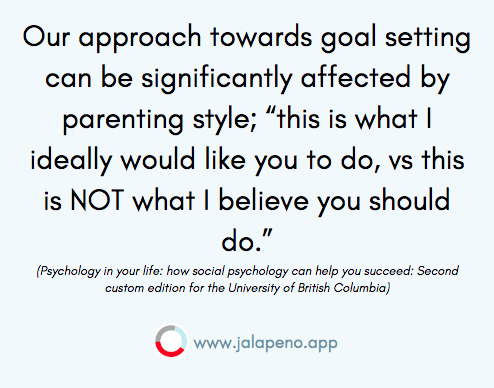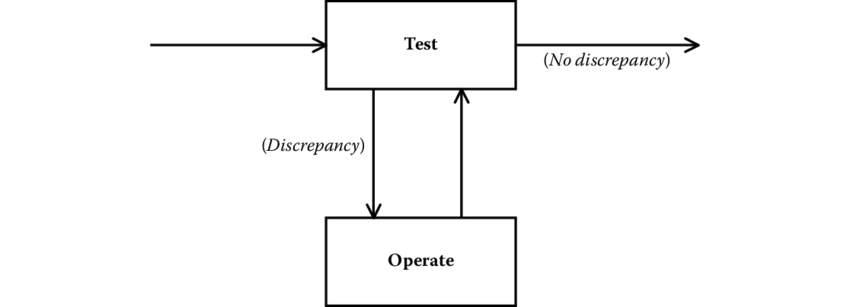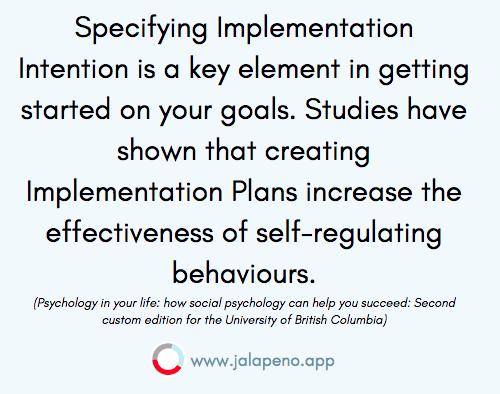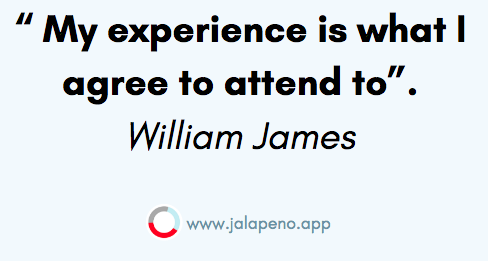
Samin Saadat
Executive Director

Samin Saadat
Executive Director
We discussed in our previous article what self-control is and why it is critical in high performance and higher well being. We also left you with an interesting dilemma about having limited resources for self-control. On one hand, we have limited capacity for self-control and it is not easy and productive to be in this mindset all the time. On the other hand, having high self-control for reinventing ourselves and creating mental stability are critical skills to develop to “survive and thrive” in the future workforce!
So, how can we develop such important skills without being drained?
In this article we will discuss:

It is usually easy and pleasant to walk and think at the same time. However, next time you are going for a pleasant walk, try to compute 36 X 27 in your head. You will notice that you’ll immediately stop walking in order to do the calculation. This famous and simple experiment by Daniel Kahneman suggests that in extreme and demanding cases, the activities we do can compete for limited resources of self-control.
Another example is that you will have a harder time resisting food temptations or smoking when you suffer from emotional distress or are exposed to environmental stressors such as excessive noise or overcrowding. As an example, during an hour of writing, just think about the number of times you browse your phone, check your emails, or even look in your fridge (Ironically, I have been doing this while writing about self-control); that is because self-control is a limited resource that can be used up by other tasks, resulting in self-control failure.
Research suggests that any number of mental distractions can impair the self-regulation process, leading to failure of self-control efforts ( e.g. Carver & Scheier, 1998; Muraven & Baumeister, 2000)
One of the explanations lies in the interactions of two systems (introduced by Daniel Kahneman ) involved in mental control.
System 1: System 1 is fast, instinctive and emotional. System 1 thinking involves associating new information with existing patterns or thoughts rather than creating new patterns for each new experience.
System 2: System 2 is to monitor and control thoughts and actions” suggested” by System 1, allowing some to be expressed directly in behaviour and suppressing or modifying others. It is slower, more deliberative, and more logical.
What we are observing at Jalapeno and what research suggests, is that engaged people operate on system 2 most of the time, they are more alert, more intellectually active, less willing to be satisfied with superficially attractive answers, and more skeptical about their intuitions. In other words, They experience a “flow” state of mind. The psychologist Mihaly Csikszentmihalyi conducted research on this. People who experience “flow,” as he describes it, as a “state of effortless concentration so deep that they lose their sense of time of themselves, of their problems.” Moreover, the experience was so compelling that Csikszentmihalyi referred to it as the “optimal experience”
“Being in control means being engaged” Keith Stanovich and his long time collaborator Richard West.
Research shows that much of our success or failure in self-regulation is determined before the fact. That is, the plans we make before actively pursuing a goal have much to do with our success.
The process of self-regulation is dependent on how you think about your goal in terms of approaching a desirable outcome rather than avoiding an undesirable outcome. For example, do you complete a task to deliver the best quality of work or do you complete a task not to fail? Do you exercise to be healthy and feel good, or do you exercise to avoid gaining weight?
An avoidant strategy would not generally be recommended. Many studies suggest that people who focus on avoiding certain outcomes, generally perform worse than those who think of their goals as striving towards positive outcomes.
Interestingly, our parenting style can play a significant role in developing the right goal-setting mindset in our children to have a successful future.

Another powerful Self-regulation process is Control Theory:
Control theory: This is when you act like a thermostat to achieve your goal. This model provides an idealized model of self-regulation based on a feedback loop to reduce the discrepancy between your current state and your standard state (your goal), which is referred as TOTE: test, operate, test and exit.

In this model, you first set a goal, and then you receive feedback to test if there is any progress towards your goal. If not, you operate and test again until there is progress towards your goal. Exit occurs if the goal is accomplished.
When you follow this model in your goal setting, the emotions you experience during the goal achievement process are highly dependent on your rate of progress toward future goals. It is the rate of progress toward the goal that is being monitored, not the SIZE of a discrepancy.
Gollwitzer( 1999) makes an important distinction between goal intentions and implementation intentions.
An implementation intention is a plan that says, “ when situation X arises, I will perform response Y”. I want to exercise more, which is my goal intention, but riding a bike every day for 30 minutes at 5:00 p.m. is my implementation intention. It is important to focus on your own habitual behaviour and the system that will lead you to your desired outcome. When you focus the most on having an effective and efficient system in place, you will be able to easily achieve your goal or go beyond your goal.

When you have a clear Implementation Plan in place, you encourage yourself to have higher self-control in the process by creating mental and environmental clues that make self-control more efficient, more automatic and less susceptible to distractions and procrastination.
As Gollwitzer believes, Implementation Planning helps you bypass the control of your behaviour to the environment, therefore you bypass the distractions and temptations that require effortful self-control.
When you connect your goals to specific plans ( e.g. every day, I jog for 30 mins at 5:00 p.m. right after work), you create an environmental cue that will lead you to easily remember your goal and automate the process and the desired behaviour that will not use a lot of your self-control resources.
Lastly, some theories may suggest that you have to think big and think of someone you want to be while there are some theories that suggest that you should look for something to do and pursue a very concrete goal. However, there is a downside to both of these approaches, and people end up with low self-control and well-being in both cases.
When you think at an abstract, high-order level, you get frustrated because it will not happen overnight, and it is difficult to get it. So you will give up soon.
When you think of your goal as something to do or pursuing something specific without having a bigger dream, you will deny your emotional distress and use distractions to prevent yourself from thinking about the negative feelings you experience. You may end up filling your life with many concrete and specific goals to avoid the distress that may result from thinking big, general and abstract. You may complete many unimportant tasks and check off many items on your list to feel good about your day; however, you still do not feel productive or a sense of progress. For example, in a day of work, you might complete tasks such as cleaning your cubicle, sending out 20 emails, and writing two reports for your supervisor before the end of the day, which could make you feel productive during that day; nonetheless, if you don’t know exactly how these tasks lead towards an ultimate goal, then they will not bring a long-term sense of achievement or purpose.
In order to have an effective work performance and success in achieving your personal and professional goals, you definitely need to dream big and have meaningful and challenging goals in mind. However, you also need to make sure there is a clear and concrete Implementation Plan in place for achieving them. In other words, dream big, but make sure there is a strategy and a specific plan to make it come true.
We have been using this method at Jalapeno in organizations at the individual level to enhance engagement and performance, and the results have been outstanding.

In today’s world, with many advanced technologies that hack our brains and influence our decisions and attention, it is very important to have full control of what we pay attention to, avoiding a life that is being chosen for us.
Developing Attention Management skills will enable you to control distractions, maximize concentration and be present in the moment so that you can achieve a “flow state” in which you perform highly and creatively. In this way, YOU choose what to focus on and you are being more intentional and less reactive. This is not about checking off more to-do items on your list; this skill will empower you to create a life with things that are important to you and are aligned with your goals and priorities.
Let your Technology serve YOU!:
Set boundaries for others and yourself:
You may find yourself having an established goal and a solid idea of how to get there; however, notice that you constantly come up with excuses to deviate from what you have to do. If you feel like this speaks to you, don’t worry! Research suggests that there are reasons for our failed self-control efforts, and to give you a spoil alert — They’re not all bad! Keep an eye out for our next article, where we will explore the advantages and disadvantages of our own mental scripts that lead us to deviate away from the steps necessary to achieve our goals.
The human brain, behaviour and interactions with their environment never fail to intrigue Samin Saadat . After spending long hours in psychology labs at UBC and completing her Master's at the Sauder School of Business, she entered the workforce and observed a gap between what research suggests and what companies actually do to increase productivity and profitability. Now, Samin is on a mission to bridge this gap through Jalapeño Employee Engagement — leveraging technology and professional human services to bring research findings to life to help companies save invaluable dollars and to help individuals enhance their quality of life.